PM Luxon is house proud as David Seymour continues to push the edges of social division
On Luxon, Where Our Country Is At, The Treaty Principles Bill & A Short David Seymour clip
Luxon Is That Job Interviewee That’s All Sunshine And Rainbows
Craig McCulloch (RNZ) has an unbeatable report this morning on Luxon’s reflections of his first year as PM.
Allow me to replicate:
On what Luxon might do differently with hindsight:
"I don't think there's much I'd do differently. The big things that we've got to get right for the future of the country ... I'm very satisfied with."
Would he renegotiate any parts of the coalition agreement if he could turn back time?
"I don't think there's any value in that sort of exercise."…
Given the obvious angst and division (of the Treaty Principles Bill), was it all worth it for Luxon to form government?
"Yeah, because it's part of... the reality of being a political leader in a coalition in an MMP environment.
"You have to do deals, you have to do compromises, you have to do trade-offs. It's naive, I think, to think otherwise."
What about the perception that minor parties are the ones pulling the strings?
"[Voters] like this government. They see it as being coherent. They see it as being coordinated."
But ACT has boasted of it’s "disproportionate impact" in the coalition, claiming credit for many of the policy decisions.
"No, I think it's got a fair influence, and I think we've navigated it very well."
He also fends off critique from Chris Finlayson, who “publicly opined that Luxon should have called Seymour's bluff and spurned the deal, suggesting that is what former prime minister Sir John Key would have done.”
Yet, as right wing commentator Matthew Hooton revealed last week, the Treaty Principles Bill wasn’t even a “bottom line in coalition negotiations”.
And furthermore, revealed:
“Luxon can’t say he wasn’t warned, including by every living National Party Prime Minister and more broadly, that his handling of Act’s Treaty Principles Bill was wrong-headed, and could benefit only Act and Te Pāti Māori, while severely damaging both New Zealand’s social cohesion and National’s electoral interests.”
I remember when Luxon formally formed the Coalition agreement late last year.
He had been boasting about his exceptional negotiation skills, and reports were in, thick and heavy, that Winston Peters and David Seymour had formed an alliance to play Luxon off of each other.
Matthew Hooton called it “humiliating” that, five weeks after the election, Luxon still couldn’t close the deal and reports suggested Luxon had been “outmanoeuvered” by Peters and Seymour at every step.
I saw Hooton on television opining that Luxon may not make Prime Minister if the negotiations continued to stall.
And voila, it was suddenly done.
The Halls Of Power, They Would Walk.
Together.
Luxon promised his Coalition partners respect, politeness, and space to be who they were.
And that has certainly come to be. And Luxon is too afraid to renege on it.
Each time Seymour punches out at Luxon, for example with a party letter that attacked Luxon as a “corporate CEO” who “styles himself as an elite” and calls Luxon “nervous”, Luxon laughs it off, and pivots to how ‘stable’ and ‘polite’ his Coalition government is.
"There's been no dramas and screaming, shouting, ranting or raving. We don't run that way. It's a pretty calm... and consistent show."
Always the marketing spin on top.
Or when Seymour revealed to media this year that exactly zero work had been done on cancer drugs until after the public backlash - contradicting Willis and Luxon - Luxon remained quiet.
National are also running after NZ First Casey Costello’s tobacco coat-tails like dutiful people pleasers , singing in a chorus of tobacco industry talking points such as “caffeine is just as harmful as nicotine” and repeating tobacco lobbying narratives directly
And that includes from the Health Minister Shane Reti who swore the Hippocratic Oath as a medical doctor.
How is the country doing?
The government’s track record is dubious: quietly shrinking child poverty targets down to make it “more achievable” under their policies, trying to change the child poverty measure to something completely unrelated, crashing the EV market leading to a 12% shrinkage in the clean car fleet and increasing our emissions, putting our smokefree targets at risk, and delivering low quality slop for school lunches that schools are starting to opt out of and self fund.
Meanwhile the Treasury’s economic assessment could not be more scathing if it tried: productivity at a sustained slow pace, economic growth weak, structural deficit is increasing, revenue outlook is low.
Meanwhile, the Associate Finance Ministers provide a serious and measured response to 15 credentialled economists, which he then proudly shared on his social media page -
And reports keep streaming in on Health NZ cuts - while the government cries poor on their “manufactured health crisis” and splash out on landlords, roads, tunnels, tobacco companies and private schools.
As I noted this weekend, the latest batch of Health NZ redundancies will be made just in time for Christmas - that announcement declared on the same day the whooping cough epidemic was announced.
And Health NZ staff inform me that morale is at record lows….
While the government manipulates waiting lists by stopping patients to join it, forcing those who can afford it onto private healthcare.
It appears this version of the libertarian right wing coalition is truly third world.
I’ll have more Health updates soon.
The Treaty Principles Bill Is A Hornet’s Nest That Didn’t Need To Be Kicked
As I reflect more on the Treaty Principles Bill, and regrettably start to dive more into the details of it (I’d rather leave it to the experts where this discussion belongs) - it strikes me that the words “divisive” and “social divide” are entirely understated here.
This is actually a hornet’s nest that most Aotearoa New Zealand governments tried to manage and respect for good reason:
We are stronger as one country - united and in partnership.
The Treaty’s Māori text offers Māori self-determination and sovereignty on their terms.
There must have been a lot of work done to get us to where we were - pre- this government. i.e. working in partnership to advance the well being of us all.
Rising tides lifts all boats, after all. Long standing issues can be remediated, and even though the journey may be far and wide, the time to start is now.
Except that is no longer the view.
Last week Chris Finlayson noted:
“I think David's got to understand that while he may want a nice, rarefied, intellectual seminar on the principles of the Treaty, it's a lot more than that.
"It goes to the heart of what tangata whenua aspire to and so on and it can't be seen as a mere debate. It's a lot more than that."
"We were on such a good path in a bipartisan way, over many years we've been working toward trying to undo the burdens of the past so that we could move to the future together as one, and a lot of that's being undone now. It's most unfortunate."
"There's a school of thought that says a lot of people in the National Party today aren't perhaps aware of the liberal conservative traditions of the party and the work that was done over many generations by people like Ralph Hanan, Duncan MacIntyre, Jim Bolger, Doug Graham, me.
" ... not expecting any votes out of it but because it was the right thing to do.
A lot of, maybe, people in the National Party today are more concerned about their careers than about the history and traditions of the National Party."
Finally:
Short Video of Seymour yesterday with Jack Tame:
Happy Monday and a good week ahead, all.
Mountain Tui




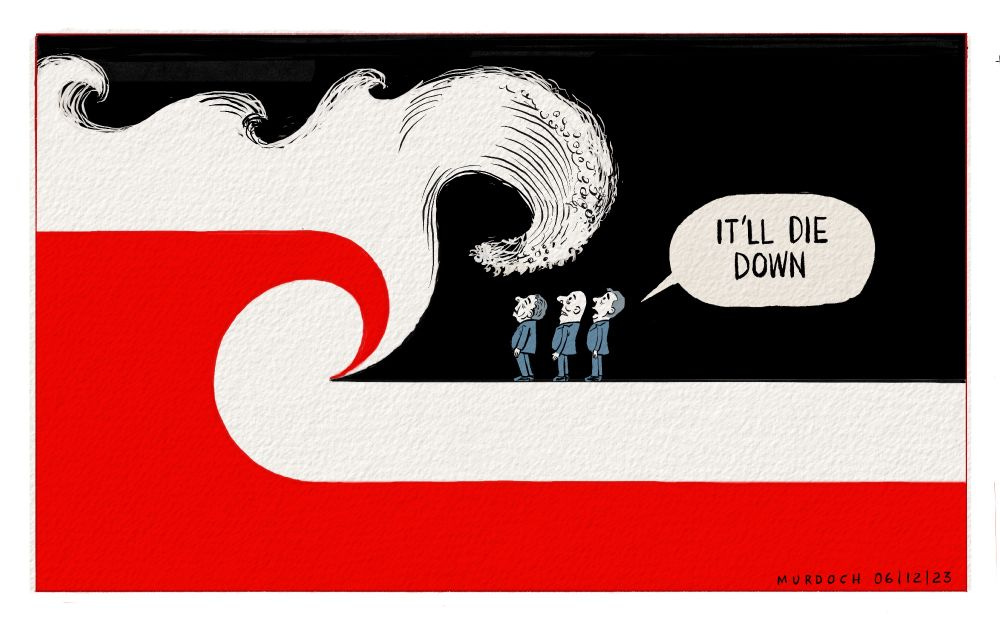
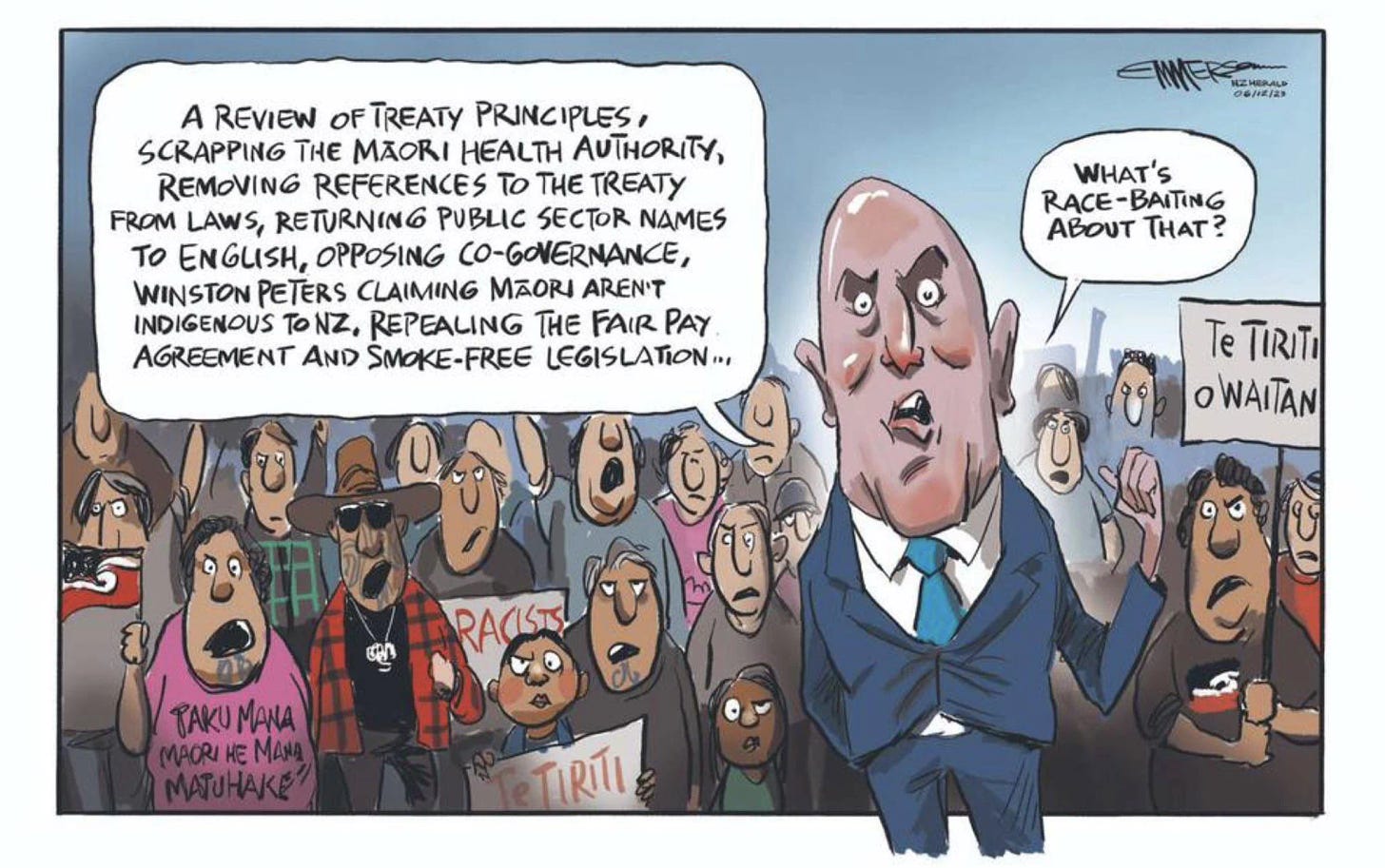
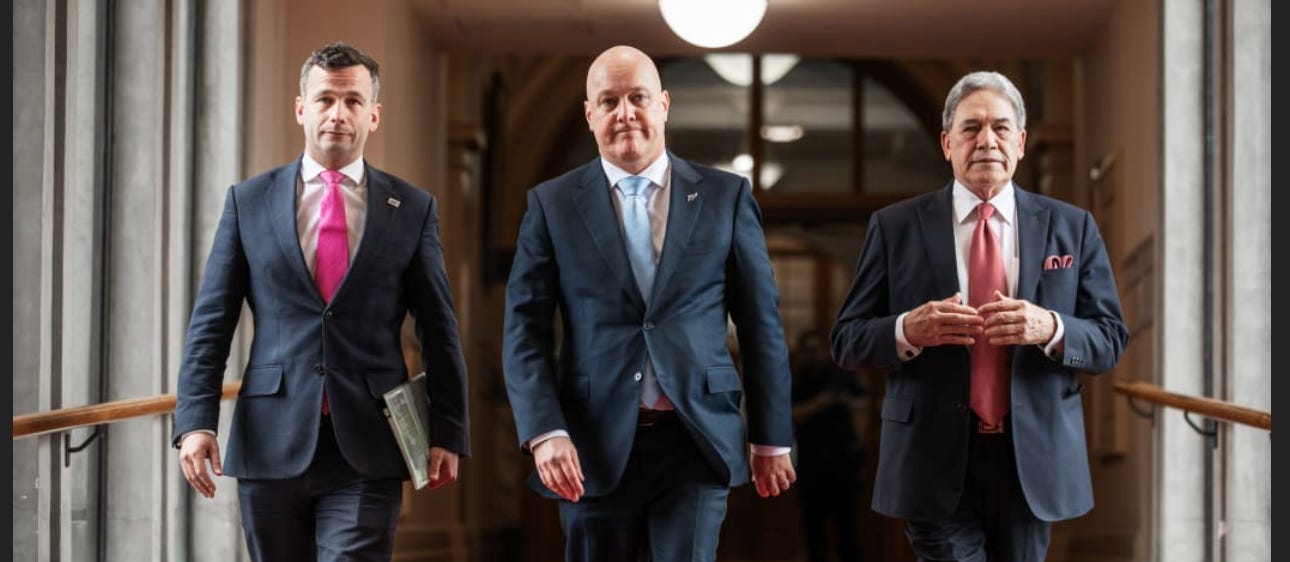
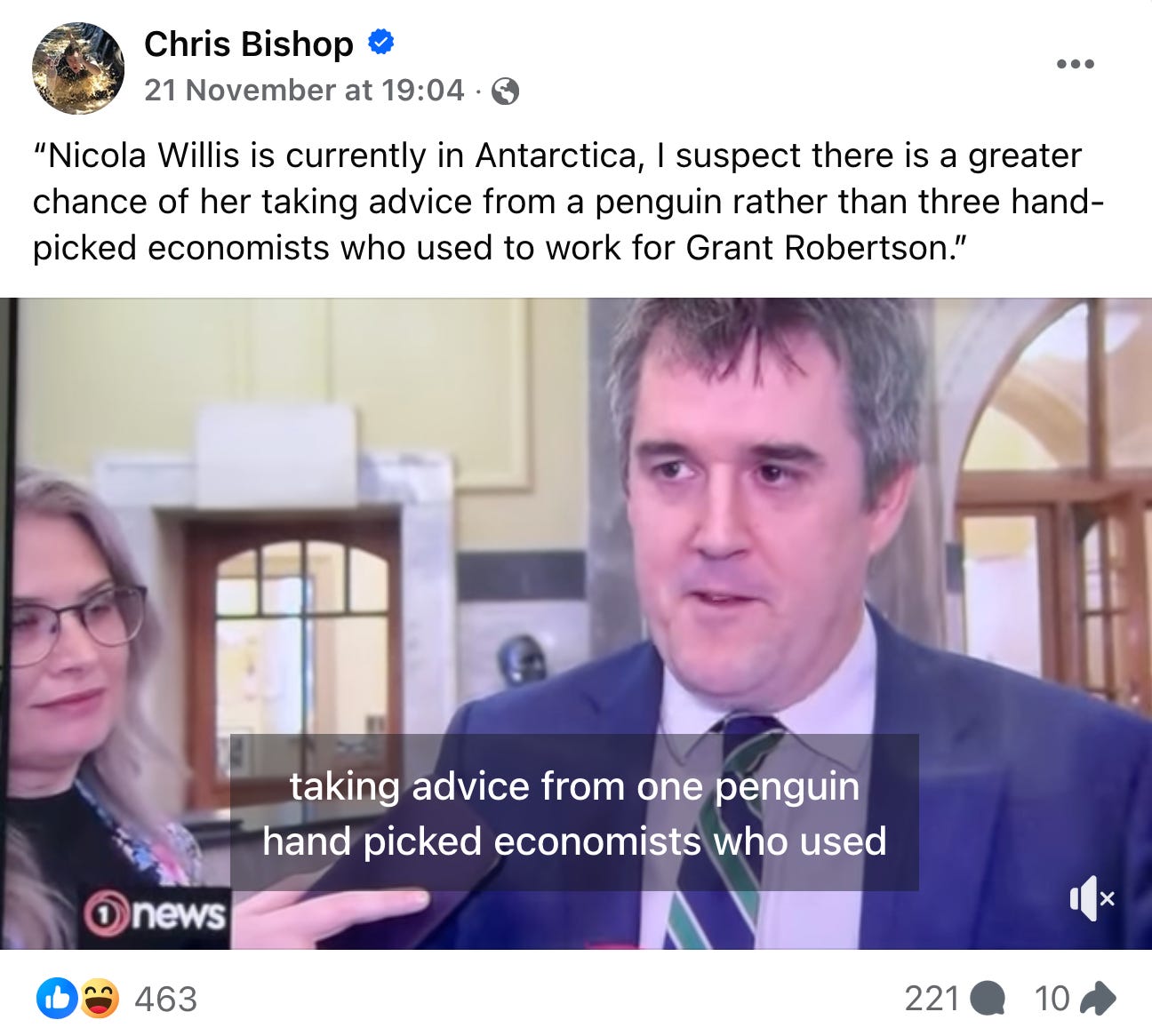
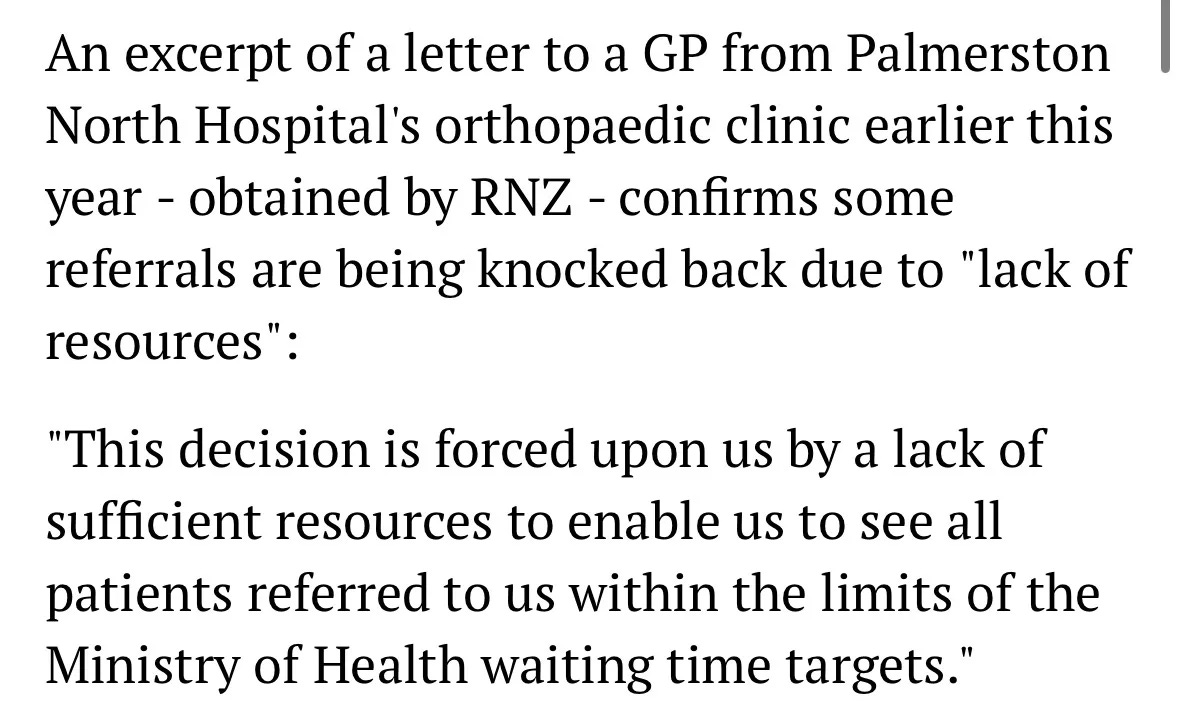


Hey Tui, just watched the video, and the kicker that comes straight from Seymour's mouth is the consultation with Māori required for "development" and this is what ACT and NZ first want to get rid of. Their backers/funders and interests ( possibly party members) see the position that Māori have as being these ex-judicial rights that cannot be easily avoided with the regulatory capture of government. In my mind, these are the shittest rights as they are simply the right to complain and block development and always positions Māori as an opposition esp in cases where it is development that is sensitive ( I am getting outside my experience here, but RMA reinforces this dichotomy? ). Of course this is worst when developers try to use Māori as a rubber stamp at the end of the process and this is where the frustration sets in as they have not covered the right ground up to that point and there is no "plastic tiki" tokenism anymore. Instead I wish they would try engaging and following tikanga of the manu whenua at the start and working in partnership, putting manu whenua on your side of the table, instead of across the courtroom. I am pretty sure most people get it here, so I wonder who really has an issue with working this way?? Perhaps Tame should have asked for specifics?
It makes for very bleak reading generally for fir all middle and low income Kiwis, for anyone on contract work and for those in industries or professions that are simply not valued by this dreadful coalition, and especially for me since I am on the waiting list for knee surgeries. It simply makes no economic sense to deprive a public health service of sufficient funding that allows safe working conditions for those employed within or for patients who are crying out for treatment. Do Willis and Reti imagine that patients are making up their conditions? There would be few people if any deliberately choosing to become sick. This is just the first step in privatisation, where you run down a service through underfunded, then sell off as much as possible fir corporations to get rich off the misery of others.....just like America!